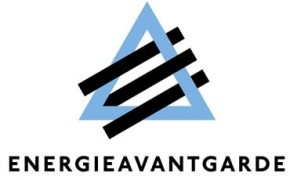Support an existing hot water storage in the city of Dessau with excess electricity from wind turbines in the neighbourhood.
Use excess energy from wind turbines and photovoltaic systems directly to heat the hot water in this storage system for district heating.
The municipal utilities have installed a hot water storage with 20,000 cubic meters of water and an output of 600 megawatt hours in order to better operate their hot water and their district heating network in the city.
A ‘power-to-heat’-study from 2017 shows us what potential could be used from excess energy. Status Quo: 12 percent of power required in the district heating network of the Dessau municipal utility. Considered scenarios that are characterized by the expansion of renewable energies (RE) and the amount of energy savings shows, that the entire heat requirement could theoretically be covered from regional renewable energy surpluses (ambitious scenario).
In a moderate scenario, 38 % of the heat demand could theoretically be covered by the total renewable energy surpluses.
If the district heating network is converted into a cold heating network in parallel, the effectiveness is increased again by 90%.
Why is this potential not being used now?
By issuing regulations in the German electricity market law, this surplus electricity is charged twice with taxes. It is therefore easier to switch off wind power and photovoltaic systems and continue to pay operators for their lost earnings than to use the electricity via a direct introduction into the hot water tank via a heating cartridge.
Resources needed
New regulations on a EU- or national level to enable the direct use of excess electricity without double taxes. EUR 50,000 for legal advice and the development of innovative regulations.
Evidence of success
Costs for redispatch and feed-in management (EISMAN)-missions are avoided and benefit the regions.
Costs for oversized electricity network expansion will be rented out.
Regional added value and accepance for wind turbines and photovoltaic systems increase the security of energy supply for citizens.
Difficulties encountered
Intelligent handling of volatile forms of energy from wind, photovoltaics and water needs flexible regulations that the energy law based on the fossil energy system still offers too little.
Potential for learning or transfer
Sector coupling is an opportunity not only for climate protection, but also for the efficient use of renewable energies, which cannot be generated in a stable manner. Even before using hydrogen, it is therefore rational to store excess energy directly, for example in district heating. These experiences can be transferred to other cities and settlements that use district heating.
Tags: Business, City, Efficiency, Energy, Good practice, Infrastructure, Local, Low-carbon, Performance, Services








